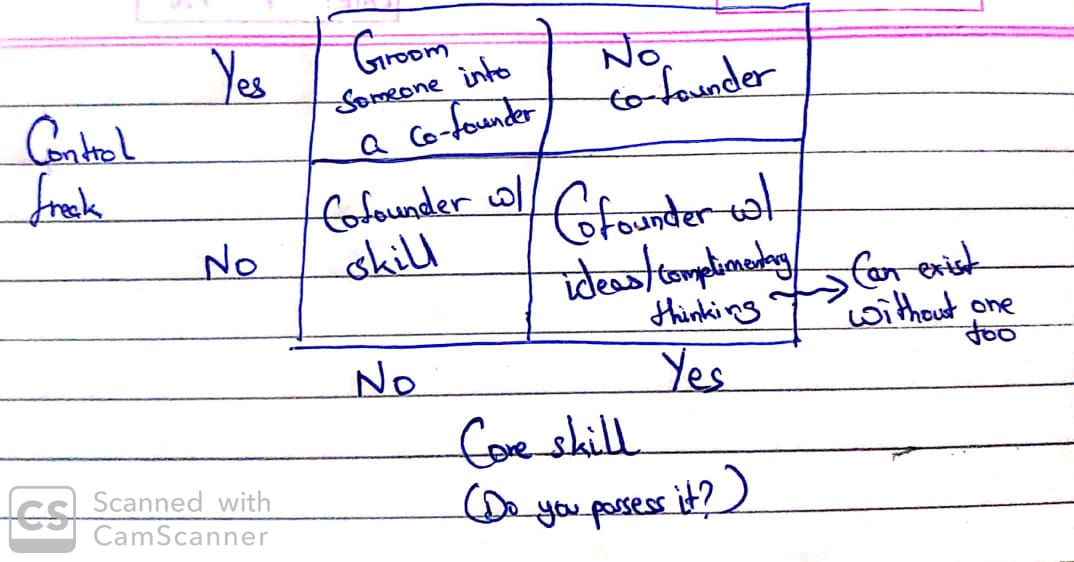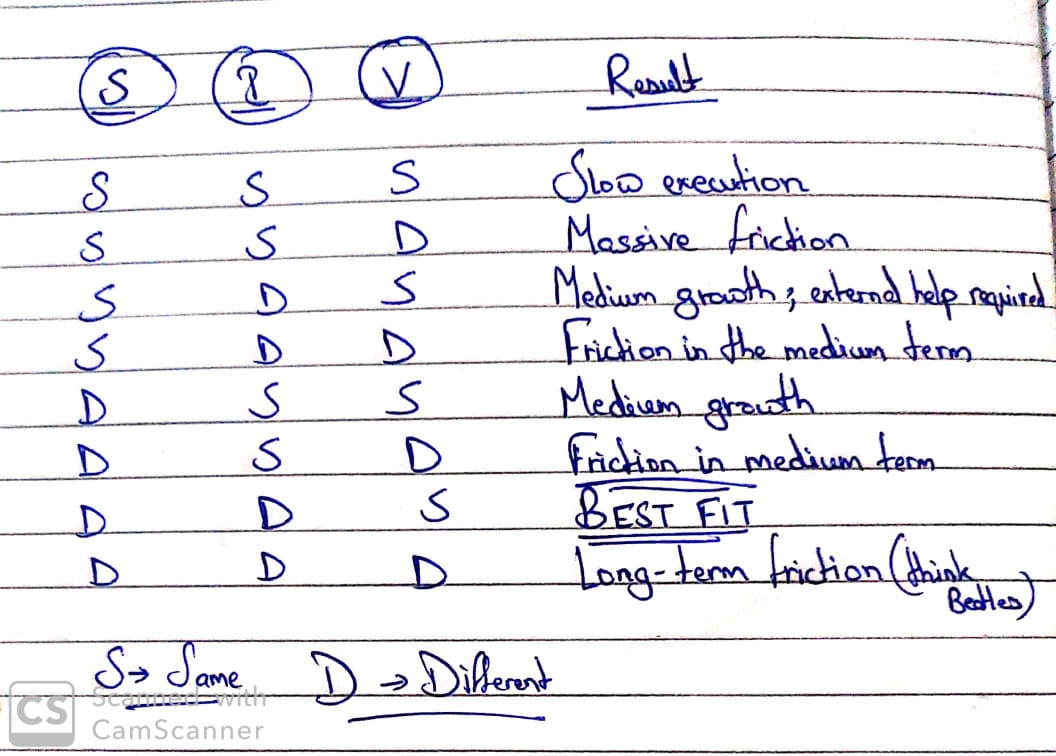Frameworks and philosophy for thinking about a startup co-founder
in Startup
Note: In addition to experience as an early startup employee, the below content has been derived from my time at the Entrepreneur First program.
We have all heard the stories. They met, they started up and they conquered. They are the co-founders.
There are a ton of variables at play in an entrepreneurial journey. These include the market, capital and good ol’ luck. The market won’t care about whether a startup team has been awake for days or not drawn a salary. The humans you work with will. Good co-founders and founding teams can help each other manage a startup’s variability and chaos. Thinking deeply about who you want to work with is as important as anything else as an entrepreneur.
There are no strict rules or absolutes when it comes to a startup. Popular startup folklore may lead you to believe that finding a co-founder is almost entirely down to luck. Luck is a factor, yes. That doesn’t mean there is no method to the madness.
This article aims to lay down some frameworks and a philosophy to think about a co-founder and to a lesser extent, founding team. There are no easy answers to be found. But if you can ask the right questions, that can immensely help your journey.
Starting with self
Before ‘product-market’ fit comes ‘founder-market’, ‘founder-product’ and ‘founder-founder’ fit. You need to be honest with yourself before you can go about expecting the same of others. It does not come easy. It is easily worth the effort though. Ask questions such as:
- Why are you doing this startup?
- Do you really care about the problem?
- What is your financial position? How important is money to you?
- How much time are you willing to commit?
- Do you think deeply about things or want to get shit done quickly?
- What kind of work-life balance do you want?
- Are you comfortable delegating or do you prefer to micro-manage?
- Alternatively, are you a control freak or not?
.. and so on.
I am not qualified to comment on right or wrong answers. A relevant article in that regard is Mark Andreessen’s Why not to do a startup. I can tell you this much - the clarity will help you make decisions quickly and decisively. That is a big positive.
Solo or not
“Do you even need a co-founder?”
If you plan to startup and don’t have a college dormmate co-founder, you most likely have asked the above. Paraphrasing a founder friend, “if you want to stay healthy and not wear yourself out, do not go solo.” That does make sense but there’s more to it.
Below framework helps you think about this question.

X-axis refers to the core skill that your startup requires. For example, a deep tech startup will hinge heavily on technology and engineering. An ops-heavy one requires relevant operations expertise.
Y-axis refers to your need for control or micro-management as a professional. The term “control freak” doesn’t have a negative connotation here.
I am still trying to digest this skill-control framework. It does offer some clarity though.
The dream team
This is the big question. What makes a good co-founder? There are couple of common-sense frameworks that I have recently come across which try to answer this.
Weighing the skills, ideas and values
Assess skills, ideas and values on an individual level.
- ‘Skills’ are self-explanatory.
- ‘Ideas’ refers to the way of thinking and approaching problems. An example of contrasting approaches is an instinct to get shit done quickly versus thinking deeply first.
- ‘Values’ are the principles that someone uses to make decisions, big or small. It is an abstract concept. You assess it the same way that you would possibly do it for a life-partner. It’s hard to ascertain, I know.

The above table describes the most probable scenarios that can arise as a result of the corresponding skill-idea-value dynamic between the co-founders. It is a neat way to simplify a complex equation.
Thinking about edge
Entrepreneur First (EF) is a global program that helps ambitious individuals build deep-tech startups. It helps you find a co-founder and raise capital. Their philosophy heavily uses the concept of ‘edge’. EF defines 3 broad edge types:
- Domain (D): Years of experience in a certain industry along with insights on how it can be improved
- Technical (T): Experts and researchers in a particular technology
- Catalyst (C): Business or technology generalists
EF’s thesis states that successful deep tech companies are primarily formed by relevant combinations of edges. For example, D+T or D+C(tech).
Boiling it down
In simpler words, you need complimentary skillsets and temperament on a good co-founding team. If someone is building a product, someone needs to sell it. There will be exceptions but this holds true in most cases. Another key takeaway is that the values need to be aligned from the get go. That is the most human element of the lot. It may be overlooked if you rush through things. Avoid that at all costs.
Parting words
Take all of the above with a pinch of salt. I am not a successful entrepreneur. In fact, I am looking for a co-founder these days. That is why I refrain from being prescriptive. That being said, I have tapped into enough collective wisdom and gained experience to know that the above frameworks are helpful.
Do not fret too much about the nitty-gritties. The frameworks will guide you but that is all they will do. The journey is yours to make. Try to be self-aware and honest. Enjoy along the way.
May the force be with you!
Source for header image: Pikrepo